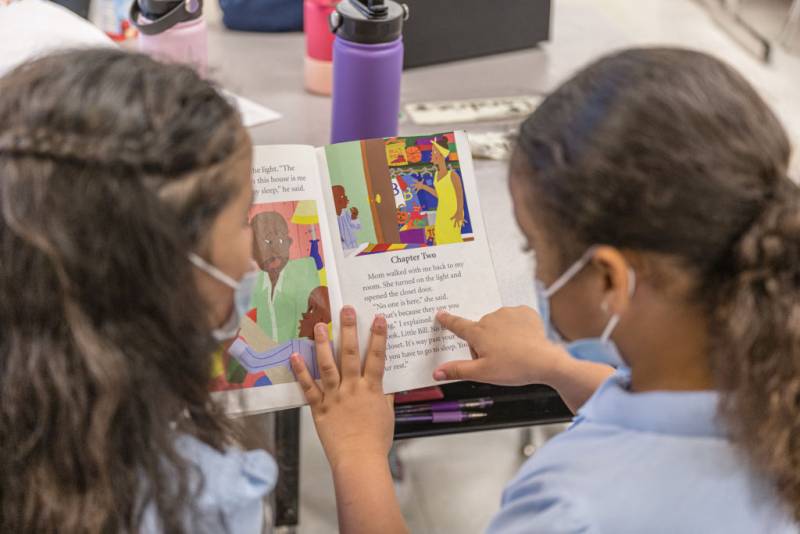According to research, before the pandemic, half of California’s third graders did not read at grade level, and the state’s fourth graders lagged behind the national average in reading. Additionally, in 800 schools around the state, 75% of the students failed to read at grade level. Despite these dire numbers, the state lacks a comprehensive approach to literacy instruction, and in 2017, California became the first state to be sued for denying children the civil right to literacy. But the solutions to these problems are not simple. Controversy exists over how to teach reading and in recent years, a push to implement evidence-based reading instruction has caused schools around the country to re-evaluate their approach. We’ll talk to experts about the science of reading and California’s approach to teaching kids to read.
Poor Literacy Outcomes for California Students Fuel Demand for Changes in How Reading Is Taught

LOUISVILLE, KY - JANUARY 24: Two girls read a book together during a lesson at Carter Traditional Elementary School on January 24, 2022 in Louisville, Kentucky. Students in the district are returning to in-person class after two weeks of Non-Traditional Instruction (NTI) due to staffing issues caused by a surge of the COVID-19 omicron variant. (Photo by Jon Cherry/Getty Images)
Guests:
Kareem Weaver, co-founder, Fulcrum, a non-profit focused on improving reading outcomes for students. Weaver is also a member of the Oakland NAACP Education Committee, a senior fellow for the National Council on Teacher Quality, and an award-winning teacher and administrator in Oakland.
Emily Hanford, senior producer and correspondent, American Public Media. Hanford is the creator of the podcast "Hard Words," which focuses on why children aren't being taught to read. She is working on "Sold a Story," a new podcast about the missteps in teaching children how to read.
John Fensterwald, editor-at-large, EdSource, an independent not-for-profit research and reporting organization
Sponsored